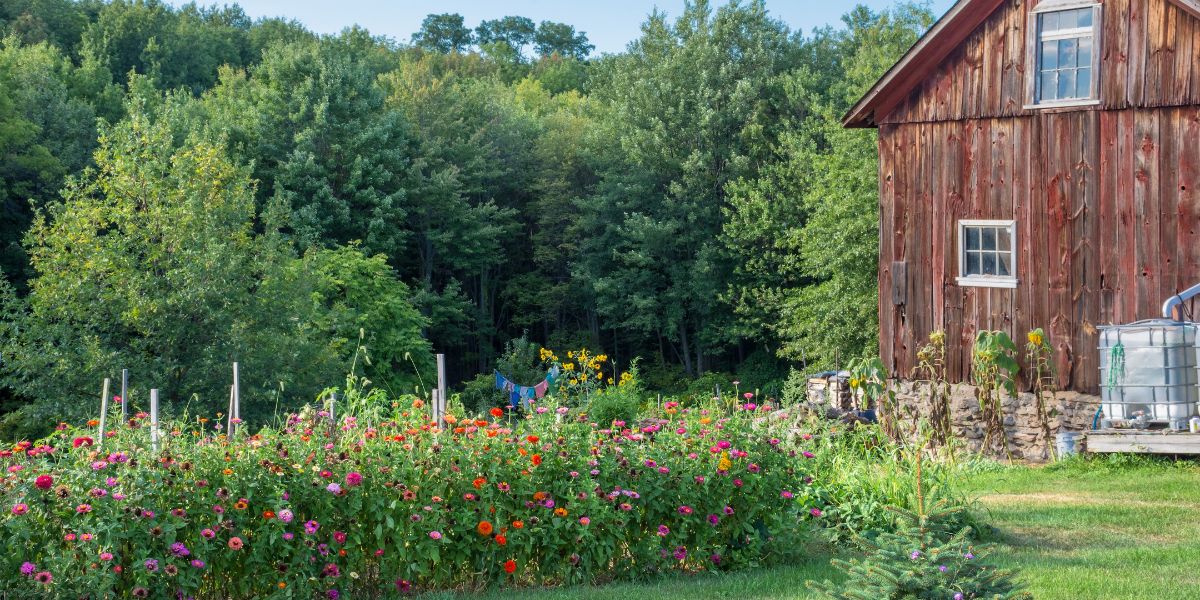Homesteading is the practice of living self-sufficiently by growing your own food, raising animals, and managing natural resources. This lifestyle allows individuals to reduce dependence on external systems and increase sustainability. For beginners, homesteading may seem challenging but can be rewarding with proper planning and knowledge.
This guide explains the essential steps, skills, and considerations for those new to homesteading homesteading for beginners.
What Is Homesteading?
Homesteading traditionally refers to living on and cultivating land to produce food and shelter. Modern homesteading expands to include sustainable living practices, such as renewable energy use, waste reduction, and natural health remedies.
The goal is to create a lifestyle that minimizes reliance on stores and utilities by producing most daily needs locally.
Essential Steps for Beginners in Homesteading
1. Planning and Setting Goals
Before starting, identify personal goals and the scale of homesteading desired. Some beginners begin with container gardening or small livestock, while others pursue larger-scale farming.
Creating a plan that includes available land, budget, time commitment, and skills helps structure efforts effectively.
2. Starting a Garden
Growing fruits and vegetables is the foundation of homesteading. Beginners should select easy-to-grow crops such as tomatoes, lettuce, beans, and herbs.
Soil preparation, seed selection, watering, and pest management are key gardening skills. Raised beds or container gardens work well for limited spaces.
3. Raising Small Livestock
Common beginner animals include chickens for eggs, rabbits for meat, or bees for honey. Learning about animal housing, feeding, health care, and breeding is essential.
Start with a small number to manage responsibilities comfortably.
4. Food Preservation Techniques
Preserving excess harvest extends food availability year-round. Methods include canning, freezing, drying, and fermenting.
Proper equipment, hygiene, and storage conditions are necessary to prevent spoilage.
5. Building Basic Shelter and Storage
Constructing or adapting structures such as chicken coops, tool sheds, and cold storage enhances efficiency.
Basic carpentry and maintenance skills support building durable, safe, and functional facilities.
6. Learning Essential Skills
Skills such as composting, water collection, soap making, and herbal medicine increase self-sufficiency. Educational resources include books, online tutorials, workshops, and local homesteading groups.
Continuous learning helps adapt to challenges and improve results.
Tools and Equipment for Beginner Homesteaders
- Gardening tools: spades, hoes, watering cans, gloves.
- Animal care items: feeders, waterers, bedding materials.
- Food preservation supplies: canning jars, dehydrators, freezers.
- Basic carpentry tools: hammer, saw, nails, measuring tape.
- Water collection: rain barrels, hoses, filtration systems.
Purchasing quality tools suited to the scale of the homestead improves efficiency and longevity.
Challenges Beginners May Face
- Initial costs for land, seeds, animals, and equipment.
- Time management, especially for those balancing homesteading with other responsibilities.
- Weather-related issues affecting crops and animals.
- Learning curve for new skills requiring patience and persistence.
Planning and connecting with experienced homesteaders can reduce difficulties.
FAQ: Homesteading for Beginners
How much land do I need to start homesteading?
Land needs vary by goals. Small-scale homesteading can start on less than one acre using intensive gardening and small livestock.
Can I homestead in an urban or suburban area?
Yes. Many urban homesteaders use container gardening, rooftop gardens, and raise small animals like chickens or bees where permitted.
What are the easiest animals to raise for beginners?
Chickens are often recommended due to low cost, manageable size, and regular egg production.
How long does it take to become self-sufficient?
Complete self-sufficiency is a gradual process that can take years. Many homesteaders focus on increasing self-reliance step by step.
Are there legal restrictions for homesteading?
Local zoning laws may regulate animal keeping, building structures, and land use. Checking regulations before starting is essential.
Conclusion
Homesteading for beginners is an achievable lifestyle change with clear planning, basic skills, and dedication. Starting small, learning continuously, and gradually expanding efforts can lead to greater self-sufficiency and sustainability.
Understanding gardening, animal care, food preservation, and resource management equips beginners to meet daily needs independently. Although challenges exist, the benefits of increased control over food, environment, and well-being make homesteading a valuable pursuit.
